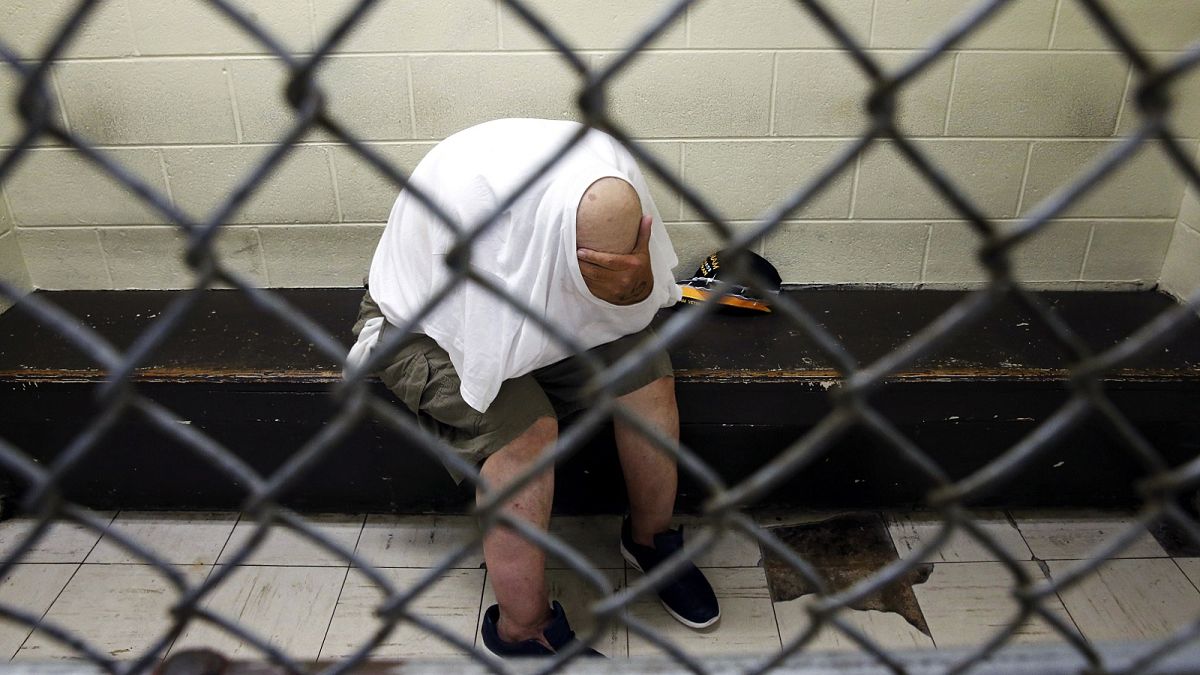For people with mental health problems, the challenges of COVID-19 are compounded by the disruption of services, barriers in accessing mental health care and a higher risk of falling victim to violence and discrimination.
The global outbreak of COVID-19 has cast a spotlight on the vulnerability of people living with mental ill-health. For people with mental health problems, the challenges of COVID-19 are compounded by the disruption of services, barriers in accessing mental health care and a higher risk of falling victim to violence and discrimination. Those who experience homelessness, are incarcerated or confined to institutions have little agency over protecting themselves. People with mental health issues are at particular risk of contracting the virus due to flaws in mental healthcare systems. Public authorities must take urgent measures to protect their well-being and to ensure access to vital services during this time of crisis.
Isolation has a negative effect on mental health
As more countries enter into lockdown, people are forced into self-isolation. However, self-imposed isolation goes against our social instinct to seek comfort by surrounding ourselves with others. For people living with mental ill-health, isolation can exacerbate existing mental health problems. Self-isolation may trigger the feeling of loneliness, which has been linked with increased depressive symptoms, suicide, a heightened risk of Alzheimer’s disease and other experiences affecting mental health. A lack of services and supportive relationships makes it more challenging for people with long-term mental health problems to maintain their recovery progress. Isolation may also become a challenge when you have no home to call your own.
“Stay at home” – but what if you are homeless?
There are approximately 700,000 people sleeping rough on any given night in Europe. Many people living on the streets experience poor mental health. Having nowhere to go also increases the risk of catching coronavirus. Transmission from this high-risk population is also difficult to contain. Train stations, subways or buses – common refuges for people experiencing homelessness – are highly vulnerable to the spread and transmission of coronavirus. On the other hand, being confined to a place during this pandemic brings its own problems. For example, common precautionary measures – self-isolation, increased hygiene or strict physical distancing – are not an option in overcrowded shelters.
Moreover, stigma and discrimination create additional barriers for homeless people with mental health problems to protect themselves from COVID-19. With restricted access to healthcare, experts are deeply concerned about mortality rates among this vulnerable group. It becomes clear that protecting people experiencing homelessness is an important element of wider, comprehensive public health response, particularly in the time of emergency. In the same way, people living in institutions or prisons are at increased risk of contracting coronavirus.
Imprisoned persons with mental health problems at risk
With the UK reporting their first prison COVID-19-related death on 26 March, concerns increased over the safety of incarcerated people – often affected by poor mental health due to unsafe living conditions in prisons.
UN High Commissioner for Human Rights, Michelle Bachelet said countries have the responsibility to protect people in detention: “COVID-19 has begun to strike prisons, jails and immigration detention centres, as well as residential care homes and psychiatric hospitals […] authorities should examine ways to release those particularly vulnerable to COVID-19 […].”
To improve the situation and protect the rights of people deprived of liberty, access to information and adequate health care provision, including mental health support, are essential. Equally worrisome is the fate of persons living with mental ill-health confined to institutions amid the coronavirus outbreak.
Responsibility to protect persons living in institutions
The situation for people with mental health problems living in institutions and psychiatric facilities is particularly concerning, the UN Special Rapporteur on the rights of persons with disabilities, Catalina Devandas has warned. They may be at an increased risk of contracting COVID-19 as a result of overcrowded and unsanitary conditions. A lack of supervision by their family due to isolation exposes them to ill-treatment. "Limiting their contact with loved ones leaves people with disabilities totally unprotected from any form of abuse or neglect in institutions. States have a heightened responsibility towards this population due to the structural discrimination they experience."
Persons affected by severe mental ill-health have little power over protecting themselves from contracting COVID-19 if they have to stay in institutions. In Greece, psychiatric units have locked people in their rooms depriving them of their mobile phones and internet access. A hospital in South Korea reported seven deaths in its psychiatric ward while more than 300 cases of infections have been confirmed by the Wuhan Mental Health Centre. By now, the first cases have also been registered in US institutions.
Restricted access to healthcare services is a human rights violation
In the wake of the global pandemic, numerous mental healthcare services have closed due to a lack of focus on social care by public authorities. Having no access to these vital services strips people with mental health problems of their basic human rights. Without immediate intervention, the consequences of the current inaction by governments will lead to a long-term negative impact on economies and communities, while leaving thousands of people experiencing mental health distress without the care they so urgently need.
In times of great uncertainty, citizens look to their governments for leadership. The coronavirus crisis is a painful reminder that reform within the mental healthcare sector is long overdue. The global pandemic has cast a spotlight on vulnerabilities caused by structural discrimination, practices of exclusion and discriminatory legislation which must be urgently addressed – during the current emergency and afterwards. Public authorities have the responsibility to ensure mental healthcare for all citizens. We are only as strong as the most vulnerable in our society.
Jennifer Oroilidis is a journalist and a Communications Assistant at Mental Health Europe, an independent network representing mental health users, professionals and service providers across Europe.
____________
Are you a recognised expert in your field? At Euronews, we believe all views matter. Contact us at view@euronews.com to send pitches or submissions and be part of the conversation.

